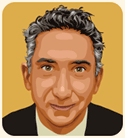You wouldn’t know it the way the media and most human rights groups have covered Venezuelan President Hugo Chávez’s recent seizure of land on May 11, but the right to private property is protected under the Universal Declaration of Human Rights (1948). Most have treated President Chávez’s most recent policy move as a rich person’s problem. In reality, most journalists and human rights activists are loath to appear that they’re coming to the defense of rich, pampered Venezuelan landowners.
But in not defending this internationally recognized right they are weakening human rights in the hemisphere—something they would be equally loath to do if it were judicial due process or freedom from torture.
Now, I’m not one to defend the egregious excess and avarice of
This is what the Universal Declaration of Human Rights, unanimously ratified by the UN General Assembly in 1948 says in Article 17: “1) Everyone has the right to own property alone as well as in association with others. 2) No one shall be arbitrarily deprived of his [or her] property.”
Here’s what President Chávez recently said about his decision to seize over 28,000 acres of land from property holders in Barinas state: “Land isn’t private; it’s the property of the nation… Land is, by nature, the property of everyone. A river is, by nature, property of everyone, like the air.”
Except that by international legal norms, it isn’t
His claim is that this is unused land and its expropriation is necessary to address the country’s food shortages. Let’s set aside for a moment the matter that the food crisis is the result of an overvalued exchange rate (that has inflated food imports), the reliance on petroleum exports (that have distorted productive investment), and price ceilings and subsidies (that have made domestic food production unprofitable) and focus on the human rights issue here.
Yeah, it’s hard to feel sorry for the wealthy gentleman (gentlewoman) farmer who has just seen several thousand acres of their weekend finca confiscated. And, let’s be honest, many of these farms probably were weekend getaways—a luxury I never enjoyed as a child and, as an employee in a non-profit, probably never will enjoy. But this isn’t about the landowners’ luxury or even the fact that they left those acres lie fallow (even if it made no economic sense for them to cultivate them).
It’s about a right, irrespective of what we may think of the owner of that right. As someone who grew up in modest means (my family owned a whopping 3 acres that surrounded our home in rural, poor upstate NY) it’s not my intention to defend the lazy rich.
After seizing a rice plant owned by Cargill and two plants owned by Polar, a Venezuelan food company Chávez said, “Against the logic of capitalism let us construct a new logic, that of socialism.”
No. Whatever we may think of the owners, the gaudy rich or capitalism, let’s stand up for human rights.




